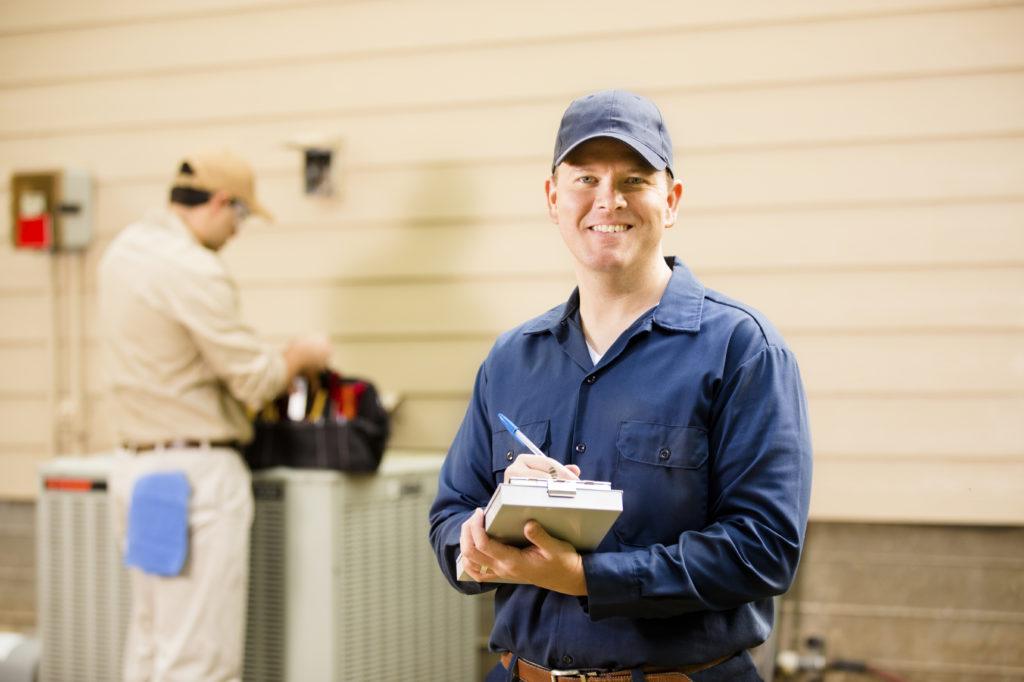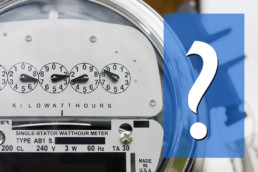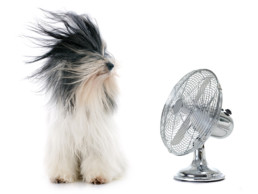Troubleshooting Air Conditioning Problems: Obstructions Matter
An Issue Some Homeowners Forget
When they encounter problems with a malfunctioning or noisy air conditioning unit, homeowners sometimes forget to check the exterior of the residence. Don't overlook this location! Obstructions around external air conditioning machinery pose problems sometimes.
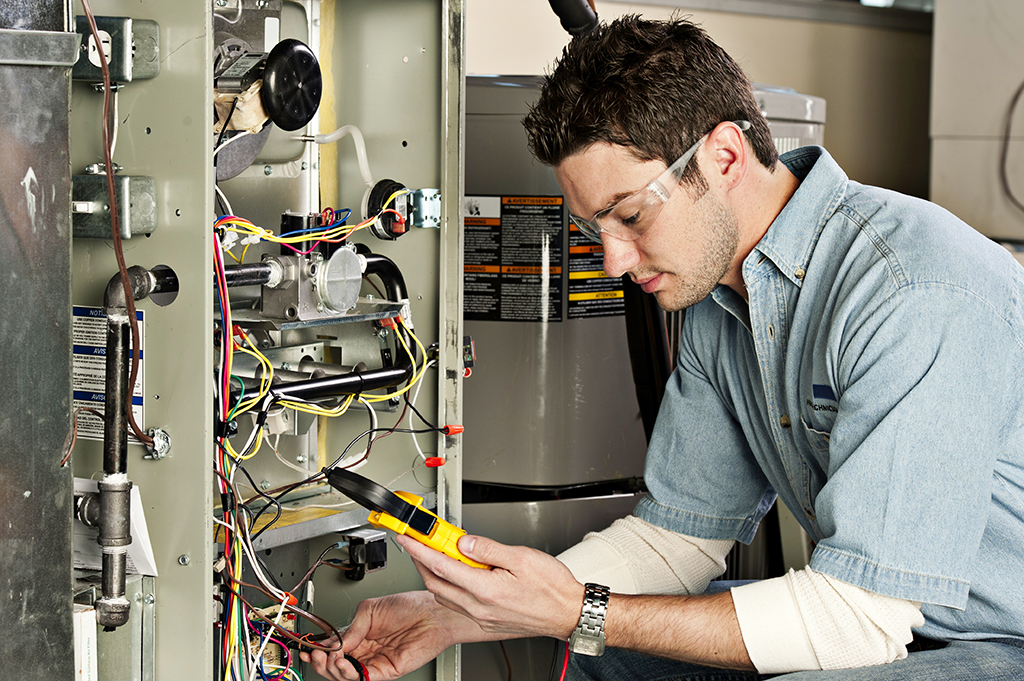
Especially in very warm, sunny, humid climates where gardeners enjoy vigorous plant growth, vegetation may grow rapidly. Florida falls within this category of tropical spots. The wonderful climate in this area promotes robust greenery. Snowbirds, in particular, need to take precautions to prevent air conditioning problems caused by unnoticed obstructions.
For optimum AC unit operation, you should not permit anything to clog or block the exterior of your home air conditioning unit. You'll maintain a much safer premises by taking steps to check this issue periodically.
A Helpful Checklist
One useful step that may assist you in helping to detect problems caused by obstructions proves very simple. Keep a checklist handy. Review these items on a periodic basis:
1. Has sand, cobwebs or debris covered the outside of your air conditioning unit?
2. Do any items of furniture sit too close to the unit to permit safe operation?
3. Has a storm window become an obstruction to a window air conditioner?
4. Have trees, shrubs, grass, climbing vines or other plants begun obstructing the unit?
5. Do household blinds or drapes sometimes blow outside and come into contact with exterior air conditioning equipment?
6. Has trash blown into the area and created an obstruction hazard?
7. Does an exterior fixture, such as a swinging porch or a doghouse, stand too close to the exterior of the unit?
By remaining alert and checking these issues frequently, you'll detect some possible problems before they can cause damage to your air conditioner. The simple step of performing this home maintenance on a regular basis helps promote safer, more efficient cooling. Simply remove obstructions to keep air flows circulating better.
Unavoidable Obstructions
How should a conscientious homeowner handle an unavoidable obstruction? Some older houses in Florida, in particular, may not enjoy efficient window air conditioning units as a result of structural issues. Architects decades ago planned some of these lovely structures without taking highly automated modern home cooling systems into consideration.
One step that might prove helpful in this situation involves reviewing the location of your air conditioning unit carefully. For instance, if your window air conditioning unit or swamp cooler once stood unobstructed, but now sits clogged among mature trees and vines that you would prefer not to remove, re-locating the air conditioner makes sense. The extent of your ability to take this type of corrective action may depend mainly upon the design of the residence.
The Best Sites For Relocated Air Conditioning Units
In a room with a window air conditioner and multiple windows, the issue of finding another site for the unit may not pose a problem. In fact, simply by changing the location of the AC equipment to an unobstructed window, you may enjoy much better air flows inside and outside the home.
Try and find a place for your air conditioning unit that enjoys its own dedicated electrical outlet. Many older units require a lot of electricity. Depending upon the wiring in your residence, you may find that plugging in a vacuum cleaner to a connected outlet will sometimes blow a fuse if the air conditioner operates at the same time.
In the Venice and Sarasota area of South Florida, our company helps residents requiring assistance with these issues. We offer state-of-the-art technology that can provide a solution to this widespread problem. We'll help you discover the best options for cooling your home or office in Florida cost-effectively and efficiently. Call or Text us today for more details (941) 203-7955 and don't forget to check out our specials, financing, and rent-to-own air conditioning options. Stay Cool with Mahle!
Putting Off AC Maintenance Will Cost More In The Long Run
Upgrading your HVAC unit can be a significant expense for your family’s budget. For this reason, you may be putting off purchasing a new HVAC system for as long as possible.
The old adage ‘If it is not broke, do not fix it’ may apply to many situations. However, in the case of HVAC systems, you should replace your old system before it breaks down.
According to the experts at Energy Star, your air conditioner or heat pump unit should be replaced every 10 years. The reason is technological advances make newer HVAC units more efficient than ever. Efficient units can save homeowners hundreds of dollars in utility costs each year.
By using an older HVAC system to heat and cool your home, you are literally blowing your money out of the window. You may be saving money on the purchase price of a new unit, but each month you are spending more money on utility costs. Older HVAC systems are inefficient and wasteful.
HVAC units are only as good as their efficiency as they perform their functions. Each unit is given an efficiency rating by Energy Star known as SEER. For example, units that were installed prior to 2005 have a SEER rating of less than 10.
To put these numbers into perspective, a SEER-9 system that is upgraded to a SEER-13 system can save your family 38 percent in utility costs per year. That is a significant saving.
In 2005, the Department of Energy mandated that all HVAC units have a SEER number that is no less than 13. This legislation by the federal government is an effort to improve energy efficiency in households throughout the United States.
Understanding SEER
SEER stands for Seasonal Energy Efficiency Rating. This is a metric system that was devised to determine the efficiency of an HVAC unit. If a SEER number is high, then it is determined to have a greater level of efficiency. You can purchase an HVAC unit as high as SEER-23.
A simple formula is used to determine the SEER number of an HVAC unit. The calculation that determines the efficiency of your HVAC unit is the number of BTUs divided by the number watts in the system.
The SEER numbers represent the potential efficiency of an HVAC unit. They are not exact measurements that will determine how the HVAC unit will perform in your home.
Factors such as the climate of your geographical area, the size of your home and the quality of your air ducts can determine the actual SEER performance of your unit. At any rate of performance, it will not be less than SEER-13.
Purchasing a New Unit
Before you go to your local ‘big box’ hardware store to purchase a unit with the highest SEER number possible, there are factors that should be considered.
- HVAC units should be purchased according to the size that is right for your home.
- High SEER numbers may not be appropriate for your heating and cooling needs.
- HVAC efficiency can be affected if it is improperly installed.
- Regular maintenance affects your actual SEER number.
Installing Your New HVAC Unit
You might be tempted to install the unit yourself or get it installed by a family friend who performs unlicensed HVAC work. Resist the urge to do so.
Since your HVAC's SEER number and efficiency will be affected by improper installation, you should hire an HVAC company using the following guidelines. All HVAC technicians who install high-efficiency equipment should be certified and experienced.
Experienced HVAC technicians will be able to examine your home and current HVAC system to help you determine a SEER system that is appropriate for your circumstances. If you purchase a system that is not right for your home, you will lose efficiency regardless of the SEER number.
HVAC Efficiency
Although SEER numbers play an important role in your HVAC system's efficiency, a higher number does not mean the unit is better. Our technicians at Mahle Cool Air and Heating will help you find the best unit that suits your home and budget. Call or Text us today for more details (941) 203-7955 and don't forget to check out our specials, financing, and rent-to-own air conditioning options.
Does a Better SEER Rating Mean a Better Air Conditioner?
Upgrading your HVAC unit can be a significant expense for your family’s budget. For this reason, you may be putting off purchasing a new HVAC system for as long as possible.
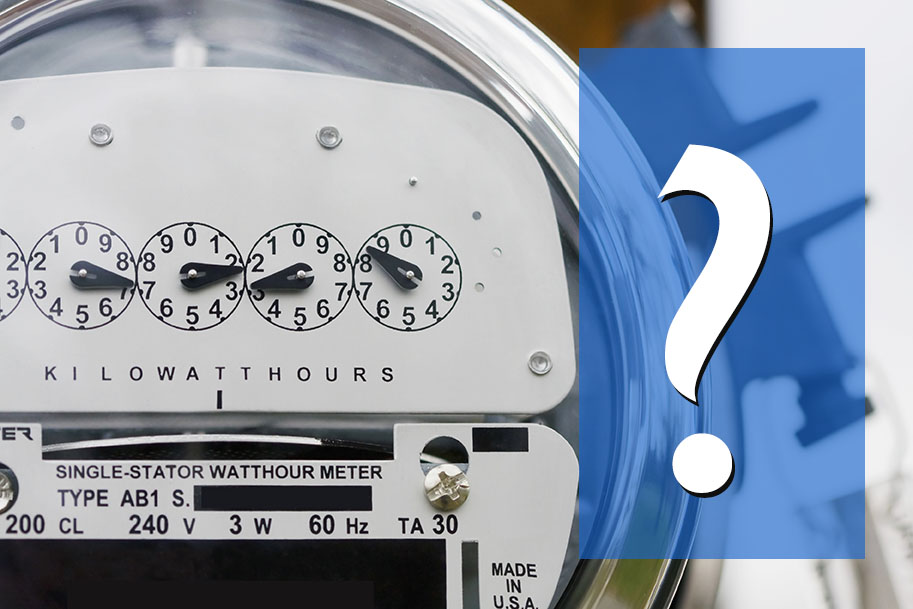
The old adage ‘If it is not broke, do not fix it’ may apply to many situations. However, in the case of HVAC systems, you should replace your old system before it breaks down.
According to the experts at Energy Star, your air conditioner or heat pump unit should be replaced every 10 years. The reason is technological advances make newer AC units more efficient than ever. Efficient units can save homeowners hundreds of dollars in utility costs each year.
By using an older system to cool your home, you are literally blowing your money out of the window. You may be saving money on the purchase price of a new unit, but each month you are spending more money on utility costs. Older heat pumps and cooling systems are inefficient and wasteful.
Each heating and cooling model form every manufacturer is given an efficiency rating by Energy Star known as SEER. For example, units that were installed prior to 2005 have a SEER rating of less than 10.
To put these numbers into perspective, a SEER-9 system that is upgraded to a SEER-13 system can save your family 38 percent in utility costs per year. That is a significant savings.
In 2005, the Department of Energy mandated that all heating and cooling equipment have a SEER number that is no less than 13. This legislation by the federal government is an effort to improve energy efficiency in households throughout the United States.
Understanding SEER
SEER stands for Seasonal Energy Efficiency Rating. This is a metric system that was devised to determine the efficiency of an HVAC unit. If a SEER number is high, then it is determined to have a greater level of efficiency. SEER ratings go as high as SEER-23.
A simple formula is used to determine the SEER number of an HVAC unit. The calculation that determines the efficiency of your HVAC unit is the number of BTUs divided by the number watts in the system.
The SEER numbers represent the potential efficiency of an HVAC unit. They are not exact measurements that will determine how the air conditioner or heat pump will perform in your home.
Factors such as the climate of your geographical area, the size of your home and the quality of your air ducts can determine the actual SEER performance of your unit. At any rate of performance, it will not be less than SEER-13.
Purchasing a New Air Conditioner or Heat Pump
Before you go to your local ‘big box’ hardware store to purchase a unit with the highest SEER number possible, there are factors that should be considered.
- HVAC units should be purchased according to the size that is right for your home.
- High SEER numbers may not be appropriate for your heating and cooling needs.
- HVAC efficiency can be affected if it is improperly installed.
- Regular maintenance affects your actual SEER number.
Installing Your New HVAC Unit
You might be tempted to install the unit yourself or get it installed by a family friend who performs unlicensed HVAC work. Resist the urge to do so.
Since your SEER number and efficiency will be affected by improper installation, you should hire a company using the following guidelines. All HVAC technicians who install high-efficiency equipment should be certified and experienced.
Experienced technicians will be able to examine your home and current HVAC system to help you determine a SEER system that is appropriate for your circumstances. If you purchase a system that is not right for your home, you will lose efficiency regardless of the SEER number.
HVAC Efficiency
Although SEER numbers play an important role in your HVAC system's efficiency, a higher number does not mean the unit is better. Our technicians at Mahle Cool Air and Heating will help you find the best unit that suits your home and budget. Call or Text us today for more details (941) 203-7955 and don't forget to check out our specials, financing, and rent-to-own air conditioning options. Stay Cool with Mahle!
Fall Maintenance Tips for Central Air Conditioners in FL
As the cooler air approaches, many homeowners feel a little overwhelmed with everything there is to do to prepare for the change. The one thing you can relax about, though, is your central air conditioner. These do need fall maintenance performed, but the fact is that it is not a difficult task to accomplish. However, ignoring the needs of your AC could leave you stranded when the hot weather comes back. By taking care of it now, you can make sure you and your family will stay cool next summer.
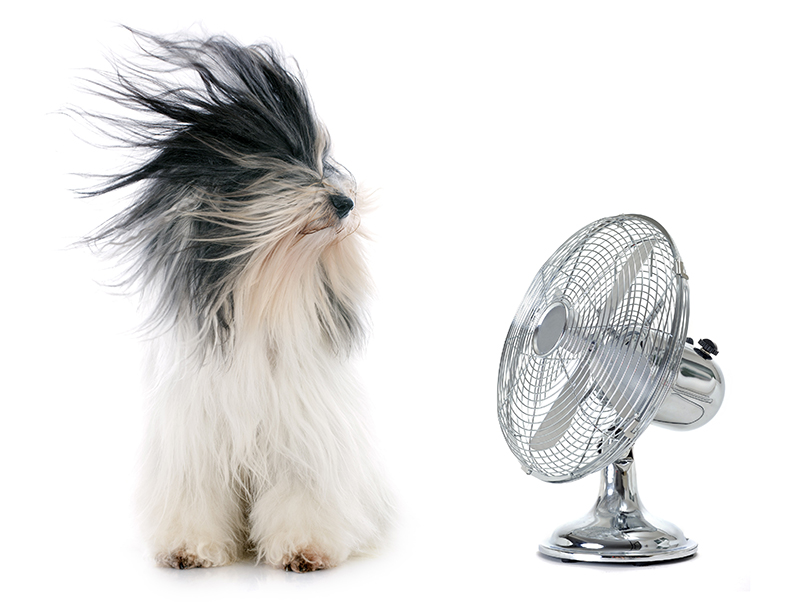
First and foremost, if you have a central air conditioner, you will need to call in a professional to perform an inspection on it. This routine maintenance will include a cleaning. While you may be able to change a filter or clean them when needed, many of the parts that need to be inspected and cleaned are actually inside the sealed unit. The professional, who has received the proper training and has the proper tools, will be able to get inside the unit to inspect and clean it.
A professional inspection of your central air conditioner will include a thorough cleaning of the evaporator coil which is located in the part of the unit located inside your home. This is the part that actually cools the air and, if it is clogged with dust and dirt, you may notice that your unit has restricted air flow. In other words, it is not putting out as much cool air as it normally does.
They will also inspect the condenser unit located outside your home. A problem with the condenser will greatly affect the temperatures in your home. Many issues are caused by outside debris getting inside the unit or a low refrigerant level. As this unit is complex and sealed, the professional should be the one to clean it and perform any routine maintenance. Part of their inspection will also include a cleaning of the fan located inside this outside unit.
If you were to simply shut off your central air conditioning unit this fall and turn it back on in the spring, you may be lucky and nothing would be amiss. Unfortunately, this is not often the case. A lot of dirt and debris can get trapped inside air conditioning units while they are in use and, if left this way, it will cause damage when they first start back up. Even if you do not notice anything immediately, over time, you will see symptoms, including reduced air flow.
A common problem among busy homeowners is that they forget to call to have maintenance performed on their system. One solution to this problem is the air conditioning maintenance plan. The plan includes a thorough inspection and cleaning of your central air conditioning unit, and it affords you the luxury of receiving priority when you call in an emergency. If you do find that your system needs servicing, you will receive a discount for having purchased a maintenance plan.
With the colder season arriving soon in Florida, the last thing you want to do is forget about your air conditioner as you will need it as soon as the weather changes again. In fact, living in Florida offers you that chance that you still may need to have your central air conditioning on in the winter. By performing routine maintenance on it this fall, you can be certain that it will be ready to go whenever you need it. Furthermore, by keeping your central air conditioner in good working order, you can save money as it will be more efficient to operate. Call or Text us today for more details (941) 203-7955 and don't forget to check out our specials on a central air conditioner and heating maintenance. Stay Cool with Mahle!
How To Choose The Best Air Conditioner
Your home’s HVAC system is one of the most important appliances for home comfort. It makes sense to choose the best possible system you can find. Here are things to consider when choosing a new air conditioner.
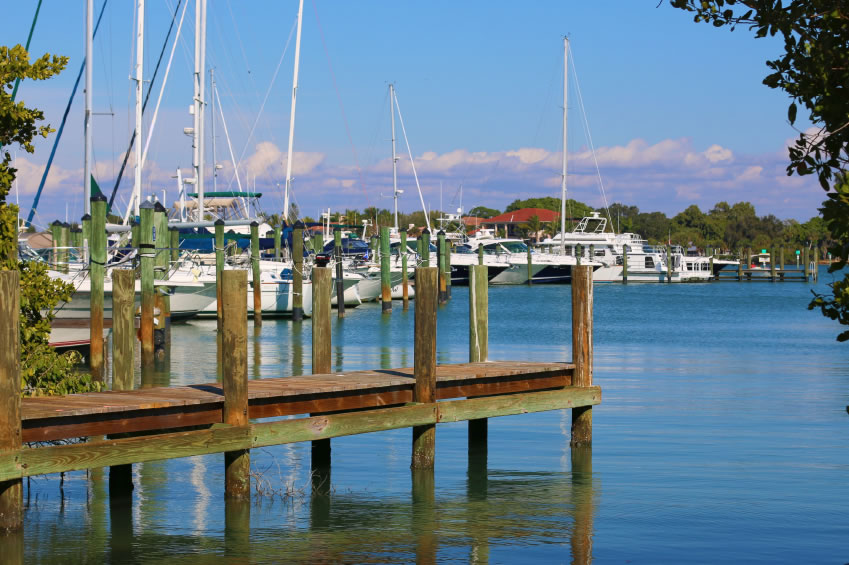
Energy Efficiency
Air conditioners manufactured today are more energy efficient than those of the past. This translates to less environmental impact and lower utility bills. However, not all air conditioners are created equal, and there are specific things you should look for to get the most out of your investment.
When you shop for central air conditioning, be sure to look at the SEER rating. This stands for seasonal energy efficiency ratio and it makes a big difference. Look for ratings numbered 13 or higher. The higher the SEER, the more efficient the air conditioner is.
If you purchase an A/C with an ENERGY STAR label, you can be assured the SEER is at least 13. ENERGY STAR labels are only given to appliances that meet strict guidelines set by the EPA. They go through a battery of tests to achieve this designation.
Type Of Air Conditioner
There are several types of air conditioners, including ducted central air, ductless central air, and window units. If you are upgrading from a ducted central air unit, you will probably want to remain with that type of system. If your home is new or you have no existing ductwork, then a ductless system may be best. These are also called ductless mini splits, and some are equipped to cool in summer and heat the home in winter. The indoor and outdoor units are connected via a thin tube, and these ductless systems are energy efficient and quiet.
Window units or portable air conditioners are sometimes suitable if you only have a small space, such as a garage, to cool.
Indoor Comfort
Look for comfort aspects aside from cooling, such as how well the unit dehumidifies and how quiet it operates.
Size
Size is very important, but this does not mean you should buy the biggest unit you can find. No matter what kind of air conditioner you buy, if you choose one that is too small, you won’t get adequate cooling and the unit will have to work very hard. This usually equates to extra noise, inefficiency and a reduced lifespan of the unit. However, if you purchase a unit that is too big, it will cycle on and off too much. Your home may be cool, but it will also be damp and you will be using more energy than needed.
Here is why choosing an oversized air conditioner can be a problem. Aside from cooling, air conditioners remove some moisture from the air, which keeps humidity levels lower and makes your home feel cooler and generally more comfortable. Since air is moved through a filter, it also helps with indoor air quality, provided the filter is changed regularly. An oversized air conditioner doesn’t need to stay on very long at a time to bring temperatures down in the home. This makes it shut off too quickly to dehumidify the air and affects air quality.
The best way to determine what size is right for your home is to have an HVAC technician come out to do a cooling load calculation on your home. Using industry-approved calculations, the technician can determine the size of system you need plus give you tips about home improvements you could make to improve energy efficiency once the unit is installed.
Other Features
Other features to look for including a fan-only switch and a variable speed air handler. A fan-only switch allows you to use only the fan when temperatures are so cool outside that you don’t need the cooling component. This saves energy while keeping air flowing through your home.
A variable speed air handler is a common feature now. Instead of pushing cool air into the home in a sudden rush before eventually shutting off again, what this does is simply change the fan speed so there is a continuous flow. These air handlers keep things quieter and make the home more comfortable, evenly cool.
Choosing a new air conditioner shouldn’t be a rushed affair. When you pick the right system, it should last for many years and save you money through energy savings. Remember to ask your HVAC professionals anytime you have any questions about which A/C is right for your home. Call or Text us today for more details (941) 203-7955 and don't forget to check out our specials, financing, and rent-to-own air conditioning options. Stay Cool with Mahle!
